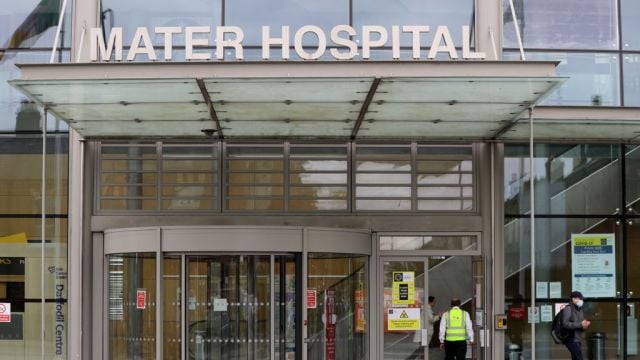The Mater Hospital warned of the risk of a “catastrophic technical failure” of its computer systems after an IT glitch caused chaos during the summer.
The hospital was hit by a failure of its patient record computer system in July, which led to the cancellation of surgeries and a plea to the public not to attend its emergency department.
A report prepared in the aftermath said the hospital’s PatientCare records system was beyond “end of life” with no technical support available for critical elements.
It said: “Services were affected for the entirety of the outage; this included an unknown level of harm to the patients.
“No assurance can be given that [the] system will not fail at any point into the future. Furthermore, if the failure is in one of the unsupported elements of the system, the failure may be unrecoverable.”
The report detailed how July’s IT outage left the hospital exposed as medics were forced to revert to the use of paper files without access to electronic records.
It said that 60 procedures – including 32 surgeries – had to be deferred including “time sensitive urgent care.”
The report added: “Support for outsourcing surgical activity in the private hospital system was denied by the HSE.”
It said that 420 GP referrals were made through the system during the “down time” meaning care of all those patients would be “delayed as a result of this failure.”
The Mater report said additional staff were deployed across the organisation to help, but this would not be a sustainable solution for a more serious IT failure.
“Longer outages will require adjusted rotas, outsourcing and overtime as well as decreased activity to sustain safe practice,” the document said.
It said the risk of a catastrophic IT glitch needed to be dealt with urgently as an extended problem could lead to a reduction of up to 50 percent in services.
The report added: “A technical failure that results in the loss of PatientCentre will impact all the hospital services including the 17 national services [we provide].
“The hospital’s capacity to deliver safe and efficient services will be diminished immensely, increasing risk to patients who can access care.”
It said there had been repeated calls for a new patient record system for the Mater “in 2021, again in 2022, and again in 2023.”
“Last week, we had an insight into the chaos caused by a technical failure that lasted less than five days,” the report said.
It said waiting for a regional solution covering a larger number of hospitals could take between four and seven years.
The report said: “The hospital acknowledges that we will need to manage risk for 18-24 months if approval is granted [to us for our own system].
“However, this is significantly less than the expected time for the regional system. For this reason, waiting for the regional solution is not an option that the hospital can support.”

A separate analysis said the Mater should consider that its PatientCare system was at elevated risk and that proper strategies were in place in case of further failures.
Asked about the outage, a spokeswoman said: “[The hospital] worked as quickly as possible to rectify the situation, but some patients were affected, which the Mater Hospital regrets and apologises for.
“The hospital has been working for some time with the HSE to update and replace the existing ICT system and it is now part of the programme to introduce a new National Electronic Health record.
“Pending that new system being in place, the Mater Hospital has instigated a range of measures to mitigate against future systems failures.”







